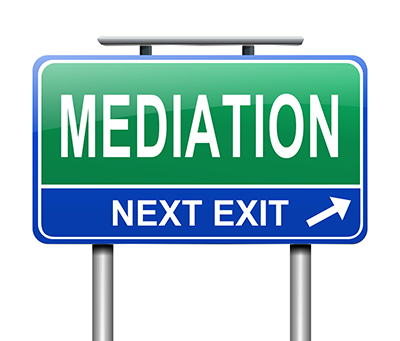Families Change
Guide to Separation & Divorce
Mediation
 Sometimes parents who are splitting up use a process called mediation to try to reach an agreement on the various decisions they have to make. The process is led by a mediator, who has been trained to act as a neutral third party in order to help people resolve their conflicts.
Sometimes parents who are splitting up use a process called mediation to try to reach an agreement on the various decisions they have to make. The process is led by a mediator, who has been trained to act as a neutral third party in order to help people resolve their conflicts.
Unlike a judge, a mediator has no decision making power. If your parents use mediation, they will meet a few times with the mediator. The mediator will try to help them reach an agreement that meets everyone's needs. They will not have to go to court unless they are still unable to reach an agreement.
